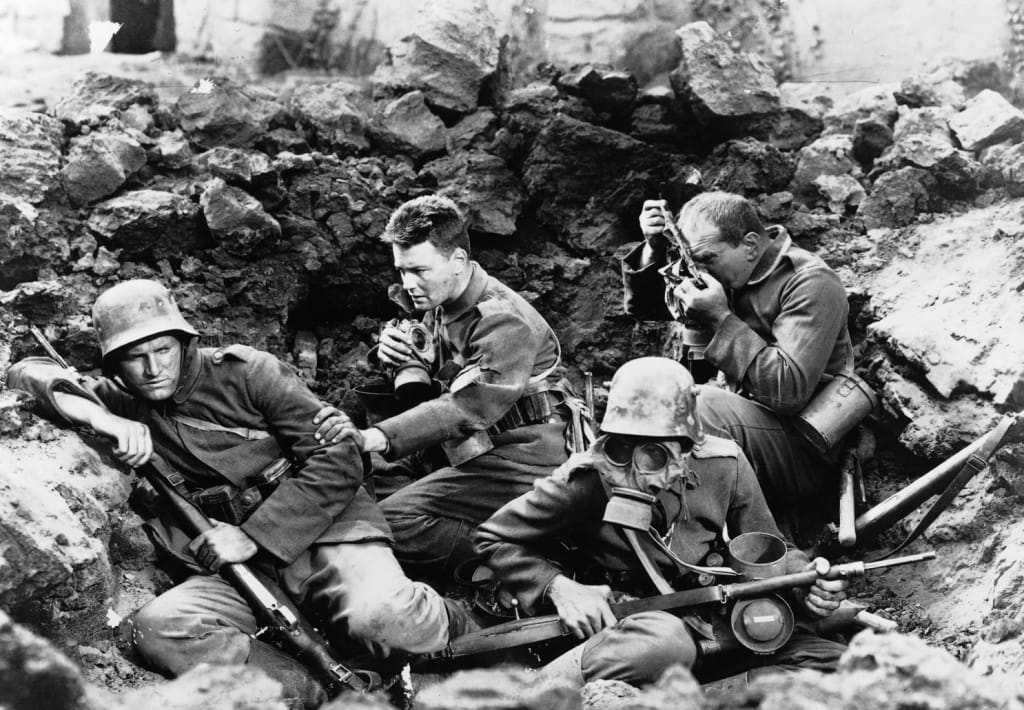
War novels always make great reads for when you're looking for the intense life experiences of some of history's greatest heroes. When you're looking for what extremes the human condition can go to, when you're interested in how much we can endure and when you need a bit of a brush up on your history - war novels are always there to turn to. But most importantly, they give you an image that you and I would probably never know. They give us that image of harshness and of near-death experiences on battlegrounds already littered with dead bodies of best friends.
What we're going to have a look at is my top ten greatest war novels and why they are so important to me. There are different wars around here and there are some of the same war, but from different angles around. What I want to focus on is what makes the book special and why I have even put it on the list. Not all of them are strikingly violent, though some of them are. Not all of them are written in a raw and coarse way as most war novels are. And not all of them are set in England, even though that is where I am born and raised. The final thing I want to say is that not all of them are entirely fiction at all.
My Top Ten War Novels of All Time
10. The Fox in the Attic by Richard Hughes
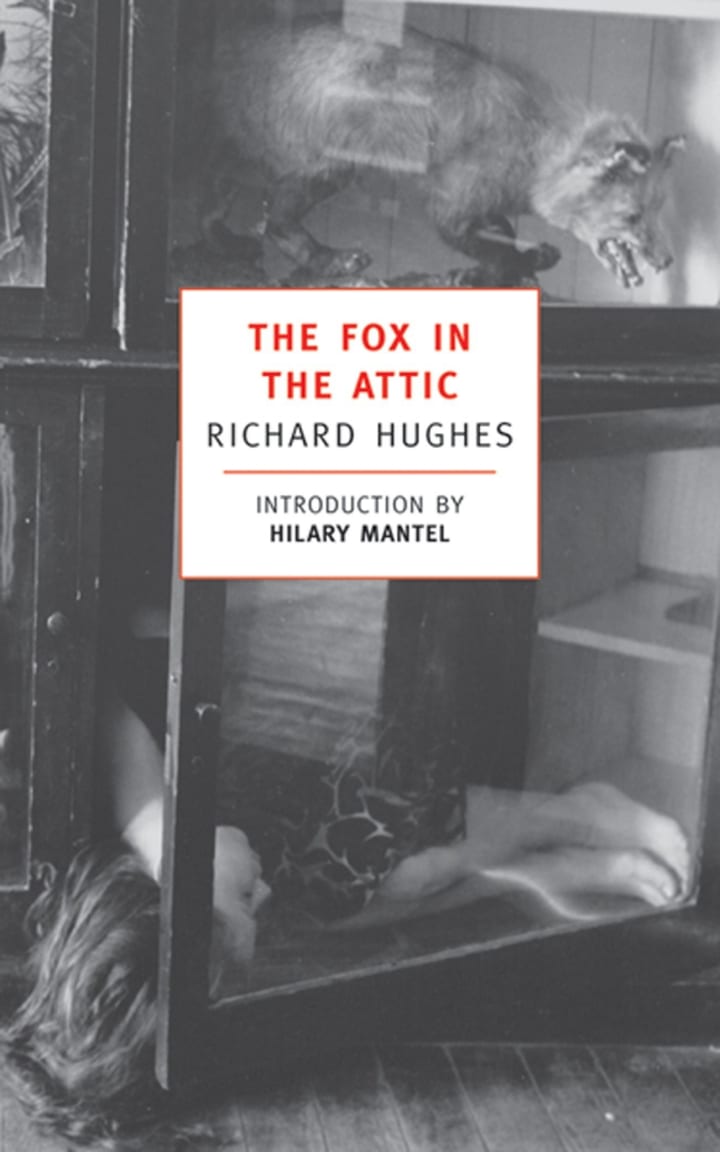
Some of this book is set during the rise of Nazism, when Augustine (the protagonist) falls in love with a girl called Mitzi in Germany. There is a part about the Munich Putsch and well, the image of Hitler I think is written brilliantly. It makes everything uncanny and uncomfortable and the way Hughes describes Hitler is literally haunting - it's terrifying. I love this book because of the way it uses language. There is something really shifty and shaky about this book that whilst Nazism is on the rise - you feel this uncomfortable force creep into the novel.
9. Dr Zhivago by Boris Pasternak
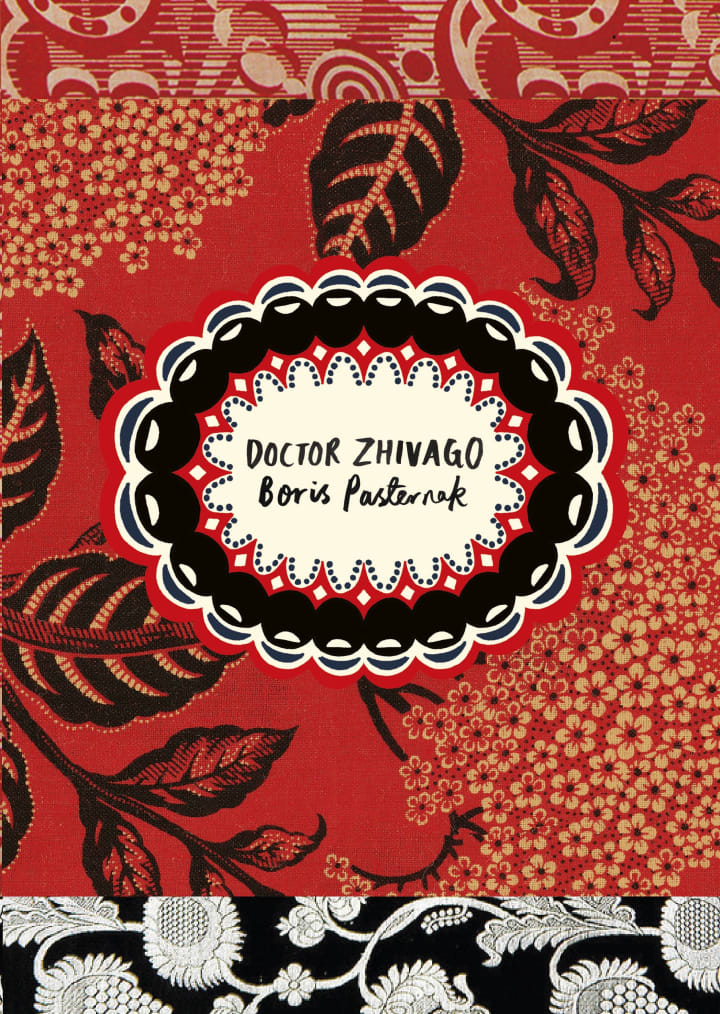
An anecdote of this incredible book: I discovered it whilst I was in school and it had nothing to do with the amazing movie (that I actually didn't watch until years after I'd read the book). It was interesting how I first discovered the book because it was nowhere to be found in the school library however, I did manage to find out about it in another book about all the books you must read before you die. Someone had written a really nice piece about this book and I was captivated - I needed to read it. I went to a bookstore and picked up a copy to which I received the reply 'are you a bit young to understand this?' I shook my head, grabbed my book and walked out. I lost a copy of that book on a train some years later and was on Twitter on which I had found someone who had picked up a copy of "Dr. Zhivago" on that same train. It had my name in the inside cover from when I was 14. I lost it when I was 22. I told them they could keep it.
8. For Whom the Bell Tolls by Ernest Hemingway
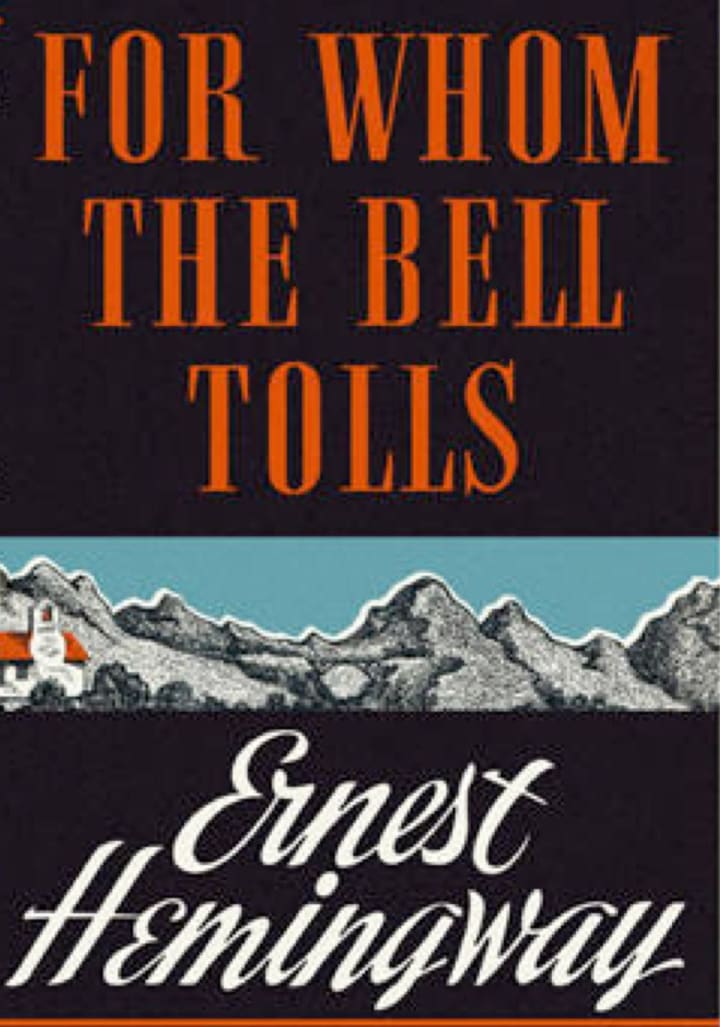
I'm not going to lie to you when I say that the very first time I read this book, I actually couldn't stand it. This is the book that made me hate Hemingway initially. However, I then refused to give up on Hemingway because so many other people liked him and I didn't want to feel like I was missing out just because I was stubborn. I mean come on, you don't expect me (who loves books such as "The Picture of Dorian Gray" and "Brideshead Revisited") to like the dry and metaphorical dullness of Hemingway. This is why I started reading Hemingway's shorter fiction - stories like "A Cat in the Rain" and the rest of them. I realised something about Hemingway when I was about 14 years' old - the way he writes is so symbolic to the story that it really does take some internalisation to understand it. It is, though plain, incredibly introspective. I then read this book in question again and I fell in love with it entirely. It made me hate, then made me love, Ernest Hemingway's literature.
7. The Good Soldier by Ford Madox Ford
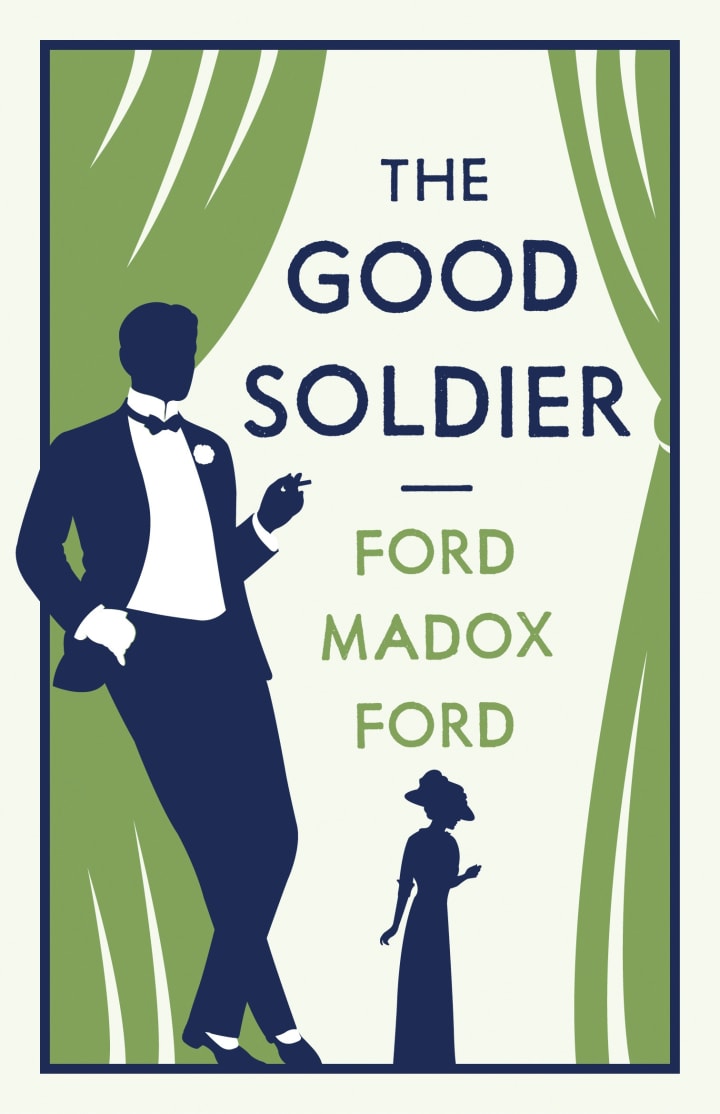
This is the saddest story I've ever heard. From the opening line of John's narration to the ramblings of the deaths of friends, the disillusion of marriage and the madness, anger and resentment that colour the novel, this post-modern styled metaphor for the ravages of war seem to stick with you long after you've read the book. The book isn't actually literally about war, but I believe that it's about the internal war of the human condition and the way in which war is all around us all the time. The incredible feature of this novel is its language. It's publication was in the beginnings of WW1, which sort of changes the meaning of a lot of the events in the book and even though a physical war isn't actually part of the main plot - the psychological one sure stands out.
6. Schindler's Ark by Thomas Keneally
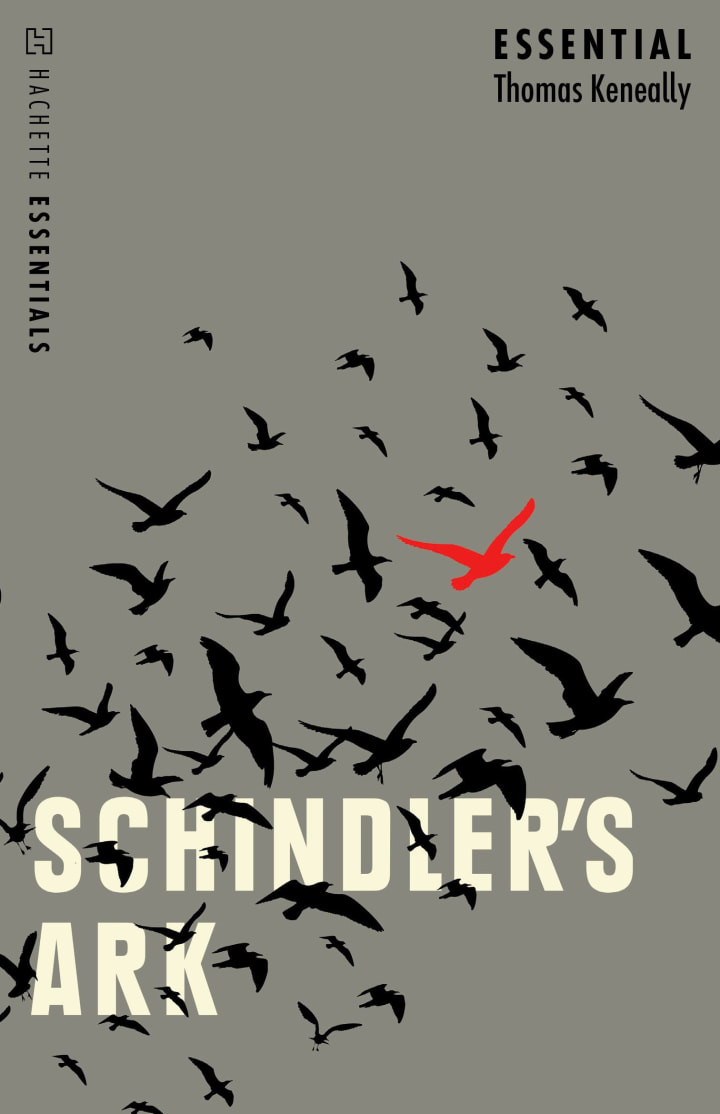
If you haven't read this book then please close this tab immediately and go and read the book. This book should be required reading for the vast majority of the planet purely because it is about an event that is so incredibly important that we don't want it simply lost. The book that inspired one of the greatest films ever made, Thomas Keneally's masterpiece outdoes most of the war novels of today and yesterday with its amazing use of character, atmosphere, personality and tone. It isn't just a sight on the screen - the book is just as good.
5. Maus by Art Spiegelman

I was talking to a teenager recently and I asked them what they were doing in history at school and they said "the rise of Nazism" which is pretty normal to study. I asked what they'd read and watched. They had watched 'The Rise of Evil' (that film about Hitler which scares you to death with its uncanny resemblance to the real man). I asked if they'd been asked to read "The Complete Maus" and they asked me what that was. Now imagine going through your life not knowing what "Maus" is about. "Maus" was basically one of the highlights of your reading existence. It is a brilliant graphic novel with some of the most heart-breaking language you'll ever read.
4.The Journals of Mihail Sebastian
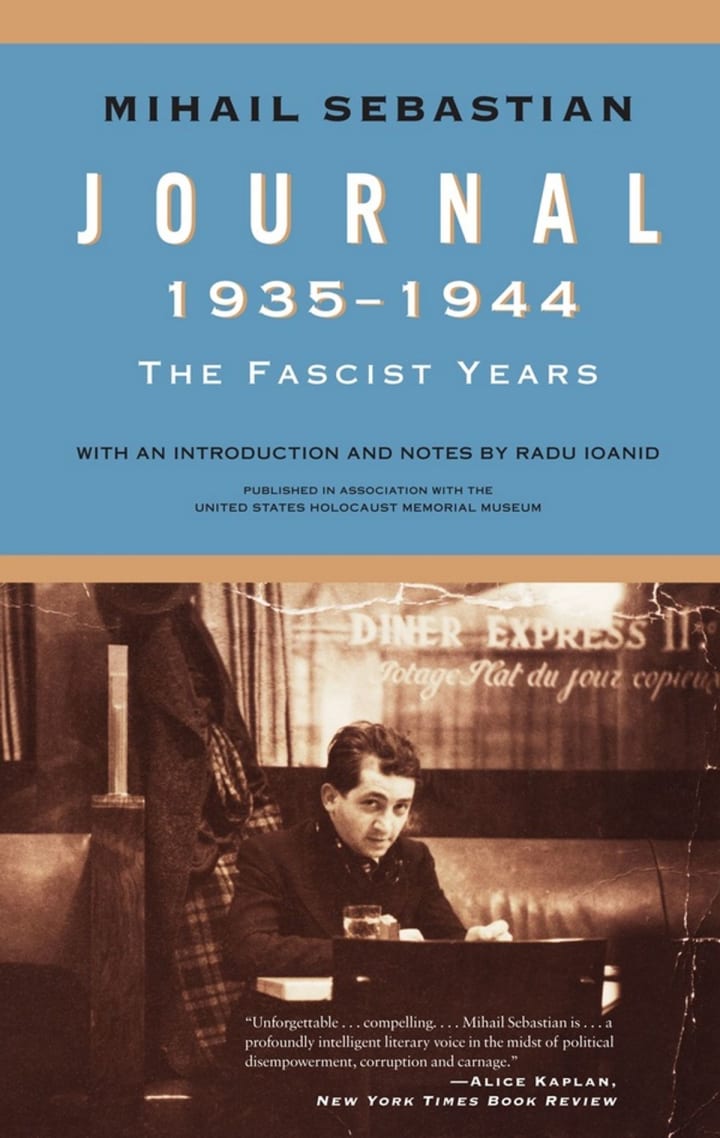
I read this book because a friend of mine on Instagram told me it was really good and we had previously read "For Two Thousand Years" by Mihail Sebastian together. We both thoroughly enjoyed ourselves and I sat there and read it flat out in about six hours. I was making notes as I was reading and I had become completely immersed in the fact that this was one man's real life. This was a journal by a man in between personalities at a time when the world was about to come crashing down around him. With the years from 1939 to 1942 being the most memorable for me, this was a book you don't forget - because never forget, it's not a story. This really happened.
3. The Red and the Black by Stendhal
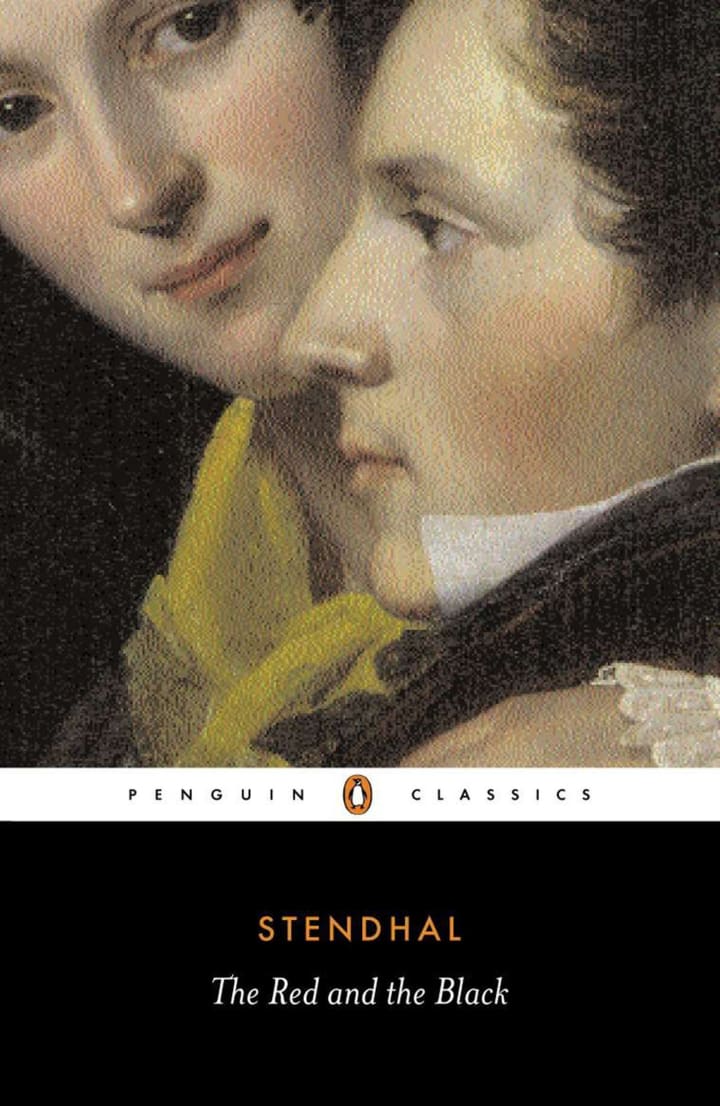
I just adore this book. It's brilliant, it's witty and yet it's written in this almost deep and tragic way. I first read this book when I was about 16 and it was one of the most intense experiences of France I had ever read. It starts off brilliantly in this small town and there's literally no real characterisation but yet you get drawn in by the style. You get drawn in by the way in which the book operates and you get drawn in by Stendhal's attention to detail. It is really quite a brilliant novel with a really great ending that gives closure and yet, opens doors of possibility for the new world of France.
2. War and Peace by Leo Tolstoy
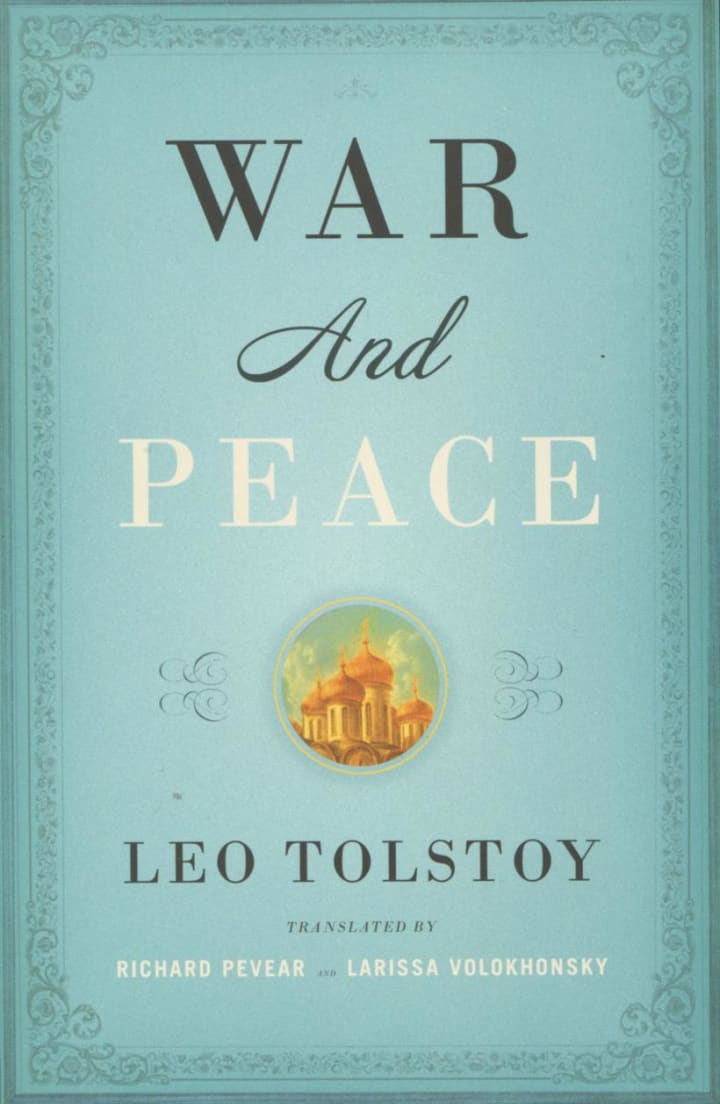
I bloody love this book. I read it when I was 16 and I had to have a notebook to take down who was related to who and who was marrying who etc. I noted things about the war and how the marriage of Pierre and Helene was going south constantly. This book with its backdrop of war and its forefront of characters who are constantly at war with each other and themselves, this is an amazing novel that even if it takes you your whole life to read - I guarantee it will be worth it.
1. All Quiet on the Western Front by EM Remarque
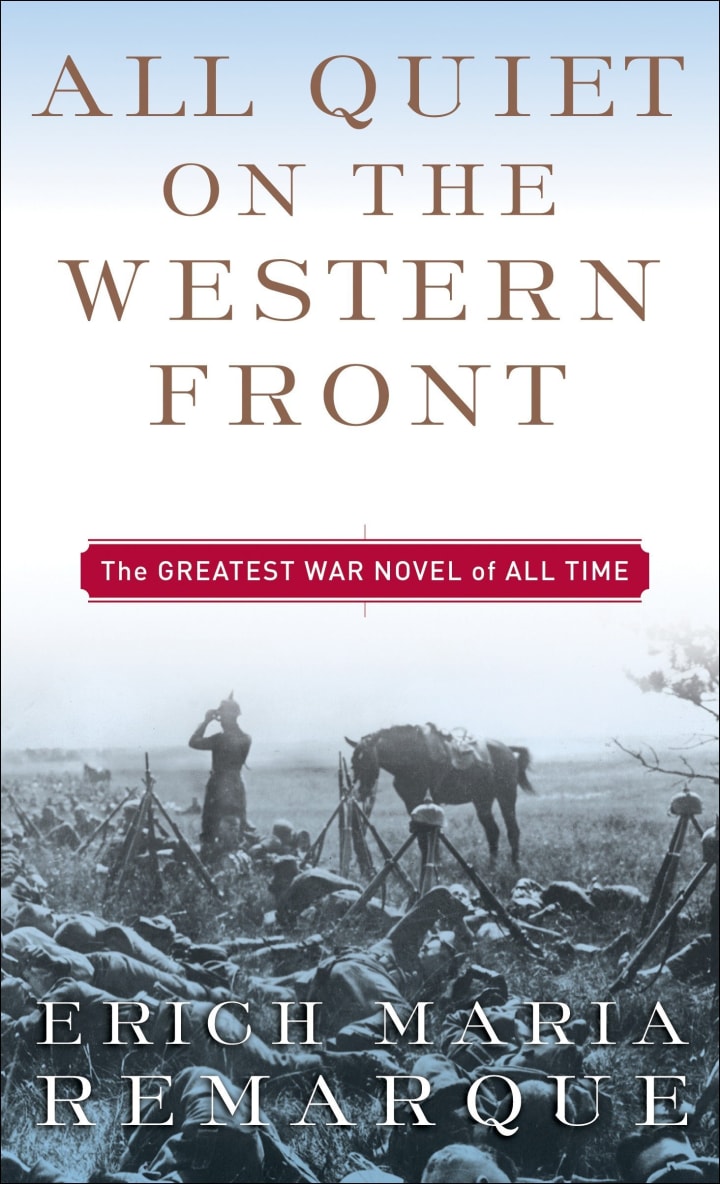
I don't know whether you've heard this anecdote before of how I came across this book but I was at school and it was about ten years' ago. My English Teacher brought in copies of this book for everyone and nobody was really going to read it apart from me and probably one other person in the class. My English Teacher came over to me and asked me what I thought of it after I had spent the whole night reading it and taking notes. I told her the truth. I hadn't spent the whole night reading it. I'd spent part of the night reading it and the other part of the night thinking about it with my head in my hands, sobbing quietly to myself. It was one of the most tragic, intense and obsessive things I had ever read. To this day it does nothing but terrify my soul.
About the Creator
Annie Kapur
200K+ Reads on Vocal.
English Lecturer
🎓Literature & Writing (B.A)
🎓Film & Writing (M.A)
🎓Secondary English Education (PgDipEd) (QTS)
📍Birmingham, UK


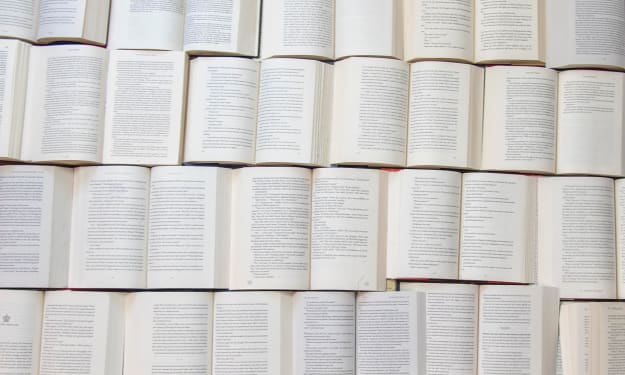



Comments
There are no comments for this story
Be the first to respond and start the conversation.